Many Psych Hospital Beds Are Back in Action a Year After Hochul Vow
The governor promised to restore 850 public and private inpatient spots for mental health care. So far New York has regained 629, half in New York City.

Dozens of mental health advocates protest at City Hall Mayor Eric Adams’ plan to give NYPD officers more leeway to involuntarily hospitalize people showing signs of severe mental illness, December 8, 2022. Photo by Ben Fractenberg/THE CITY
This article was originally published on by THE CITY
Governor Kathy Hochul is reporting progress toward a promise to restore hundreds of psychiatric beds after hospitals redeployed them to other patients during the Covid pandemic.
Hochul vowed to add 850 mental health beds to public and private hospitals throughout the state, a goal announced during her State of the State address last January.
All told, 629 of those beds are now once again being used to treat psychiatric inpatients, according to Hochul spokesperson Avi Small, who added that approximately half are in New York City.
The governor has also created 150 new state operated psychiatric beds this year, including 100 in New York City, he said, a goal Hochul initially announced would take two years.
The need is dire.
Between 2014 to 2022, the state lost 1,849 psychiatric beds, according to the state’s Office of Mental Health, dropping from 9,320 to 7,471 in that time.
“My predecessors for years were just shutting down psychiatric hospitals, eliminating psychiatric beds, and replacing them with nothing,” Hochul told reporters on Oct. 12, 2023. “So, like any other health issue, if you don’t treat it, it gets worse and that’s why we have so many people on our streets.”
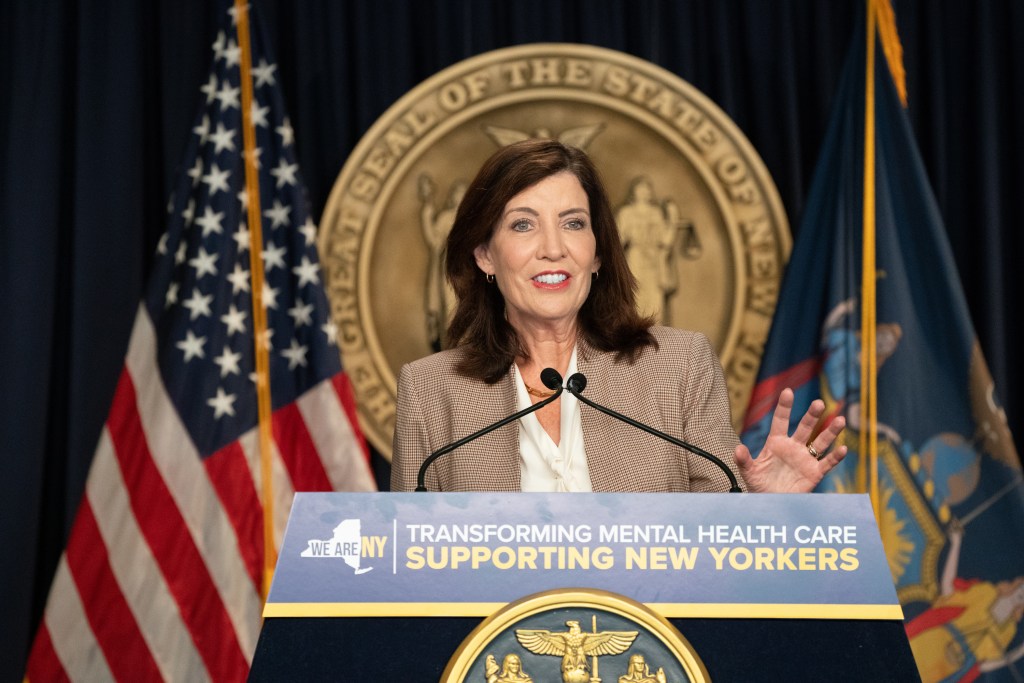
Former Governor Andrew Cuomo spearheaded an effort to downsize the state psychiatric hospital system and reinvest funds in community services. A recent series of investigative reports by THE CITY and ProPublica documented the impact of the shutdowns on young people.
Mental health advocates hailed the additional designated hospital beds but said more needs to be done to assist a vulnerable population with complicated and lifetime needs.
“This is a reaction to the drama going on in the streets,” said Dr. Ralph Aquila, medical director of Horizon House in Philadelphia and former senior medical director of Fountain House in New York, which helps people living with serious mental illness.
“The notion of trying to get people off the streets is a good first step,” but long-term rehabilitation facilities are necessary, too, said Aquila. “Because at the end of the day you have to have a reason to get up in the morning. You have to feel wanted.”
Fountain House is now serving as a model for expanded services in New York City. In June, the city Department of Health and Mental Hygiene outlined proposed Adult Clubhouse Programs, with the goal of reaching at least 15,000 adults with serious mental illness within two years.
The Adams administration has earmarked $14 million to create the clubhouses, which operate “like a co-op business” in which members work in different areas like the cafeteria, employment, education, and communications, according to a city bid solicitation for possible operators. The deadline for proposals was January 17.
Stuck in the ER
New York City’s public hospitals, under the Health + Hospitals system, have all gotten their psychiatric beds back to their pre-pandemic levels before the pandemic, Brian Stettin, senior advisor to Adams on matters of severe mental health, told Manhattan Community Board 5 members at a January 2 meeting.
“We’re still a couple hundred short on the private hospital side,” he added. “The state tells us that they’re going to be using more of their authority to kind of crack down and get those private hospitals to put those beds back.”
The hospitals contend they need more money to hire psychiatrists and other medical personnel trained to handle people diagnosed with serious mental health issues.
But last January, the Office of Mental Health sent letters to 50 hospitals across the state, including 25 in New York City, among them Bellevue Hospital, Maimonides Medical Center, and Montefiore Medical Center.
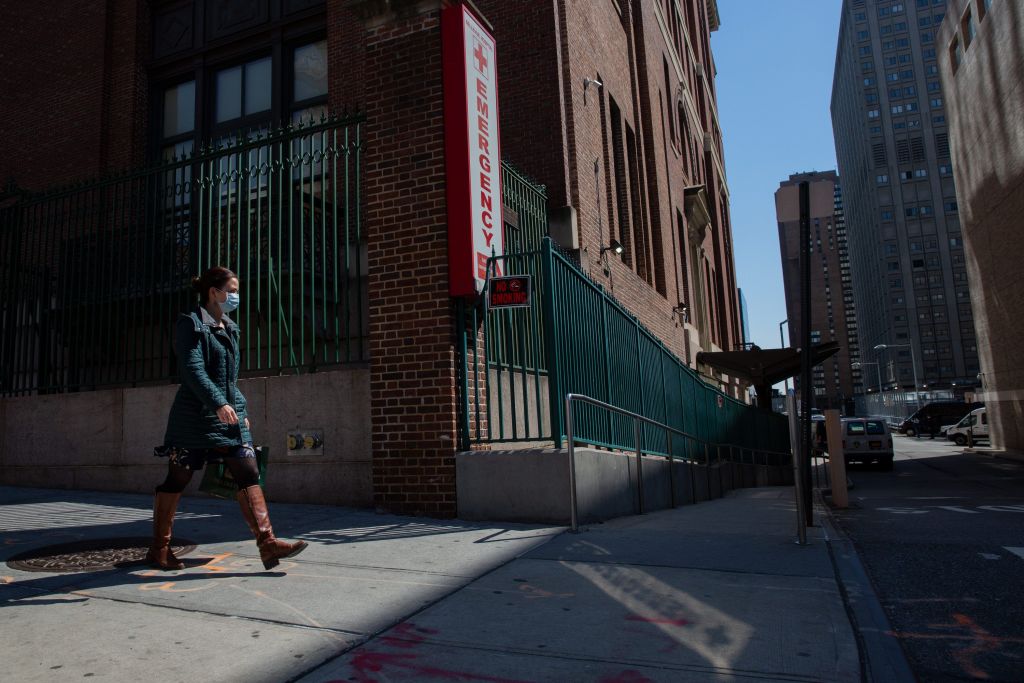
The missives ordered the state-licensed hospitals to come up with a plan by February 10 to bring back the psychiatric beds or be subject to fines or other enforcement actions.
In November, the state Health Department hit Rochester Regional Health with a $925,000 penalty, Politico reported.
That is the only hospital that has so far been financially penalized despite some blowing the deadline, according to state Health Department records.
New York-Presbyterian Brooklyn Methodist Hospital in Park Slope is still down 28 psychiatric beds since the pandemic, according to Irving Campbell, who works in the unit and is the chief delegate for the New York State Nurses Association (NYSNA) at the hospital.
All told, the hospital went from 52 psychiatric beds to 24, said Campbell.
“We are hearing they are trying to turn the unit into a psychiatric intensive care unit,” he added, noting it would be a total of 12 beds. The unit would also include a so-called “stepdown” area where agitated patients can get an IV line to “help keep them calm.”
In the meantime, he’s “constantly seeing” psychiatric patients in the emergency room waiting for beds.
Currently, he said, he has several patients who live in Brooklyn but are primarily treated in Manhattan.
“We have to reopen all of these beds so we can tackle the mental health crisis,” he said.
Angela Smith Karafazli, a New York-Presbyterian Brooklyn Methodist Hospital spokesperson, said: “We have reopened some of the beds we were forced to close during the Covid-19 pandemic and are working closely with the state to reopen more beds as quickly as possible.”
Forced Hospitalization
During the community board meeting, Stettin suggested that fines alone may not be enough to bring hospital beds back online.
The hospitals may just view that financial penalty as the “cost of doing business,” he said, adding: “They can make a lot more money doing other things with those beds.”
After the pandemic hit, hospitals shifted some of the psychiatric beds to treat Covid patients while others remained empty, state Department of Health records show.
Hospitals throughout the state have struggled to recruit medical personnel to staff the psychiatric units, according to industry experts, all the more so in the remote-work era.
“Covid has certainly made things worse, where people have left public sector mental health care to go into private practice because of the comfort zone of seeing people from home on the screen,” said Dr. Aquila.
The push for the much-needed added medical care comes as Mayor Eric Adams last November ordered city cops to forcibly hospitalize people who cannot care for their own “basic needs” as a result of apparent mental illness.
Civil liberties groups and mental health client advocates have vehemently opposed that mayoral initiative, contending resources for outpatient counseling and services to communities in need are better ways to combat the mental health crisis.
The Adams administration is also pushing for changes to state law that would expand the definition of who could be involuntarily hospitalized for psychiatric illness.
Presently, only those who pose a threat of serious harm to themselves or others can be held without their consent. In pending legislation, some people who can’t care for themselves would also qualify for involuntary hospitalization. The legislation is languishing in Albany without the support of any major advocacy groups.
Additional reporting by Gabriel Poblete
THE CITY is a nonprofit newsroom that serves the people of New York. Sign up for our SCOOP newsletter and get exclusive stories, helpful tips, a guide to low-cost events, and everything you need to know to be a well-informed New Yorker.
Related Stories
- City Pulls Rug on Homebuyer Grants, Leaving Applicants Stuck Between Floors
- Red Hook Post-Sandy Flood Protection Plans Move Closer to Finish Line
- Rent-Stabilized Apartment Tally Drops Further, as Some Landlords Try to Rent at Market Rates
Email tips@brownstoner.com with further comments, questions or tips. Follow Brownstoner on Twitter and Instagram, and like us on Facebook.


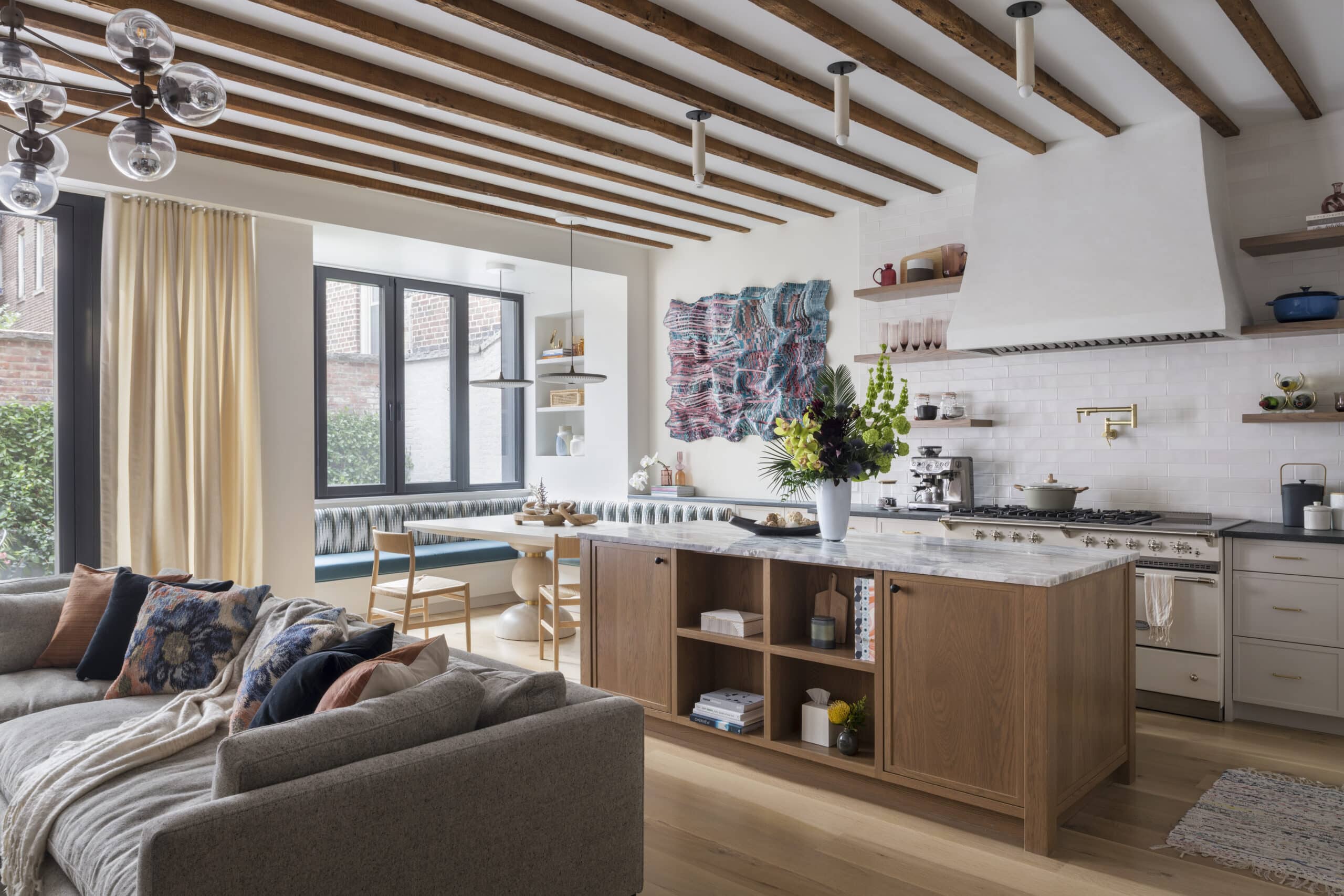

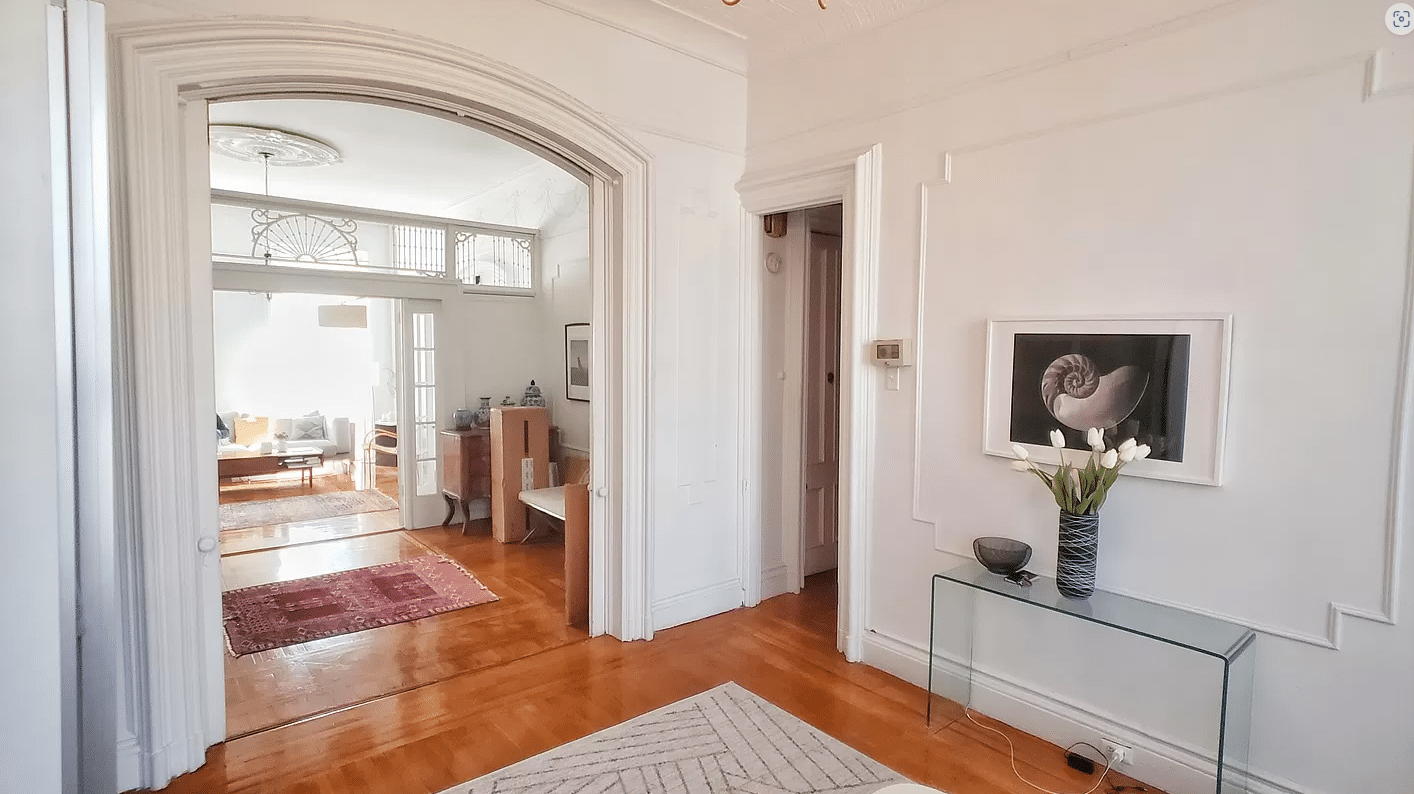
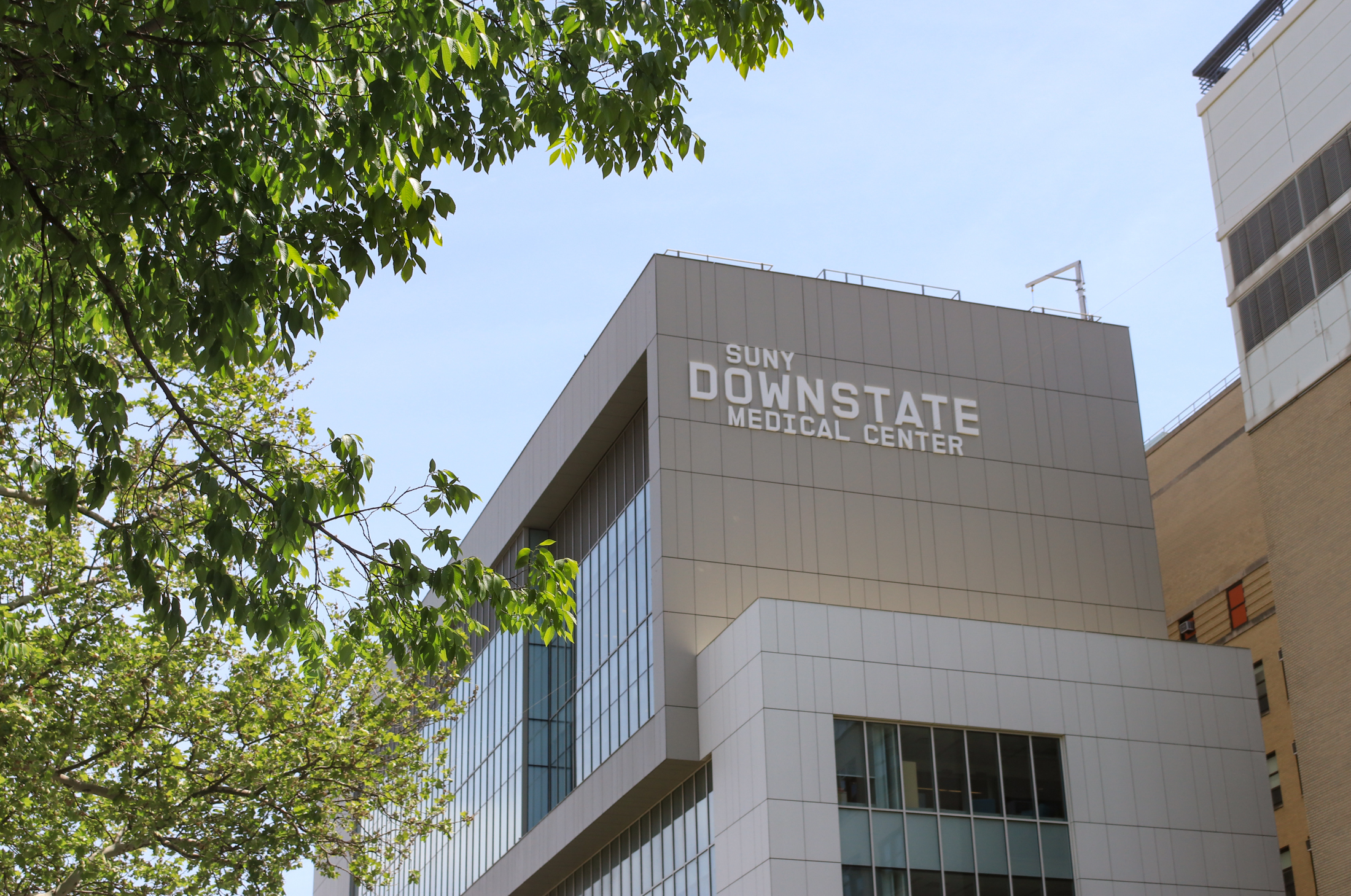



What's Your Take? Leave a Comment